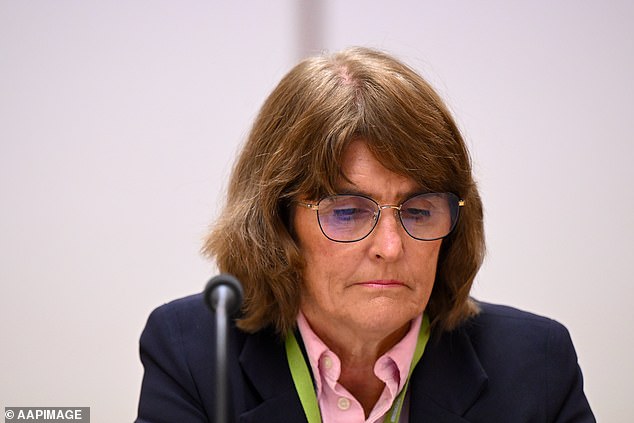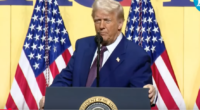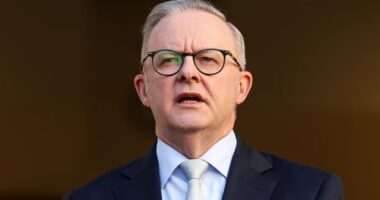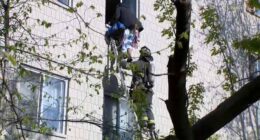The Reserve Bank Governor has admitted interest rates remained at record lows for too long during Covid – causing a cost-of-living crisis later.
Michele Bullock acknowledged the decision during a committee meeting of the House of Representatives in Canberra last Friday, just three days after the Reserve Bank of Australia (RBA) lowered the cash rate for the first time since November 2020.
‘Arguably, we were late raising interest rates on the way up,’ she told teal independent MP Allegra Spender.
‘We didn’t respond as quickly as we should’ve to rising inflation.’
This decision was supported by Bullock to rationalize the reduction in interest rates, despite the fact that the baseline inflation rate still remains higher than the Reserve Bank’s target range of 2 to 3 percent, even without factoring in the $300 electricity rebates provided by the federal government.
In her statement, Bullock emphasized the importance of considering the timing for lowering interest rates. She pointed out that it is crucial to initiate the process not when the inflation rate is already within the target range but rather when there is growing confidence that the economy is heading back towards the desired target range.
‘The amount by which we are over our target is around about the same as other central banks were when they started to introduce their interest rates, admittedly from higher levels but they’ve come down a lot faster as well.
‘So, these are all the things, I think, that are playing into the board’s mind.’

The Reserve Bank Governor has admitted interest rates remained at record lows for too long during Covid – causing a cost-of-living crisis later
The Reserve Bank’s latest 25 basis point reduction occurred despite Australia still having an underlying inflation rate of 3.2 per cent.
Australia has cut interest rates well after other central banks in the United States, Canada, New Zealand and the European Union began easing monetary policy.
But almost three years ago, the Reserve Bank of Australia also raised interest rates after other advanced economies.
The RBA began the first of its 13 rate hikes in May 2022 – seven months after New Zealand began raising its equivalent cash rate.
Australia’s cash rate remained at a record-low of 0.1 per cent into the first half of 2022, even though headline inflation had hit 3.8 per cent by the June quarter of 2021.
Inflation remained well above the RBA’s 2 to 3 per cent target in late 2021 as Sydney and Melbourne residents were locked down for Covid, and after Queensland and Western Australia had closed their borders.
Australia already had an inflation crisis before Russia’s Ukraine invasion in early 2022 led to sanctions that pushed up oil prices.
By the end of 2022, inflation hit a 32-year high of 7.8 per cent, even as the Reserve Bank pursued the most aggressive rate hikes since the late 1980s.

The Reserve Bank’s latest 25 basis point reduction occurred despite Australia still having an underlying inflation rate of 3.2 per cent (pictured is Sydney’s Pitt Street Mall)
The Reserve Bank’s 25 basis point reduction has taken the cash rate back to 4.1 per cent for the first time since early November 2023.
This was just before rates were last hiked.
‘We copped quite a lot of criticism of that at the time – people said “you’ve overdone it”,’ Ms Bullock said.
‘We’d taken out a bit of insurance – we’ve removed that now because we think it’s still a prudent move.’
The Commonwealth Bank and Westpac are expecting three more rate cuts that would take it back to 3.35 per cent for the first time since March 2023.
Ms Bullock become deputy governor to Philip Lowe in April 2022, after serving as an assistant governor of the financial system.
Her admission about RBA interest rate mistakes three years ago was made three days after she denied record-low interest rates from 2020 to 2022 had caused a surge in house prices.
‘The gist of the housing price problem comes down to a mismatch between supply and demand. I don’t think you can blame monetary policy on this,’ she told reporters in Sydney.
‘If you want to fix housing prices, you’ve got to go to different policies.’









